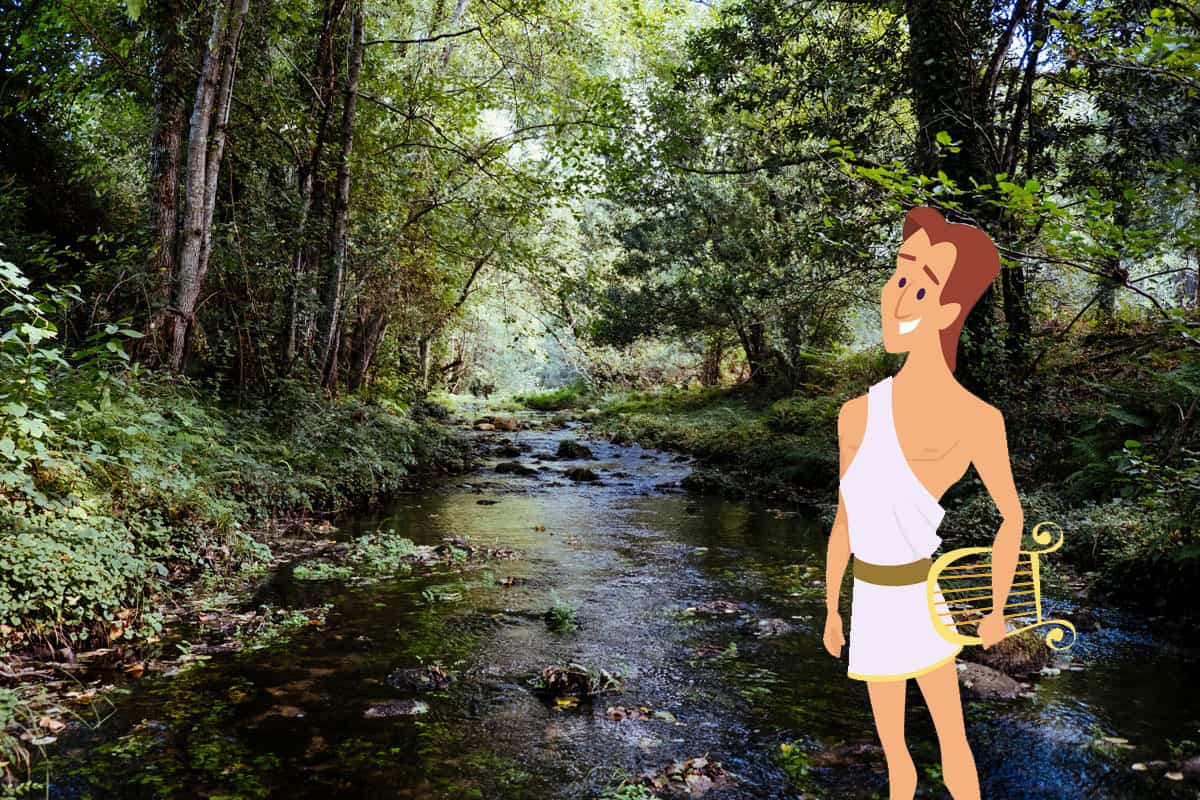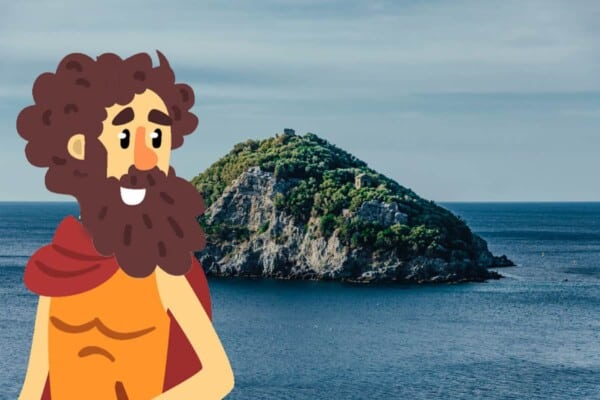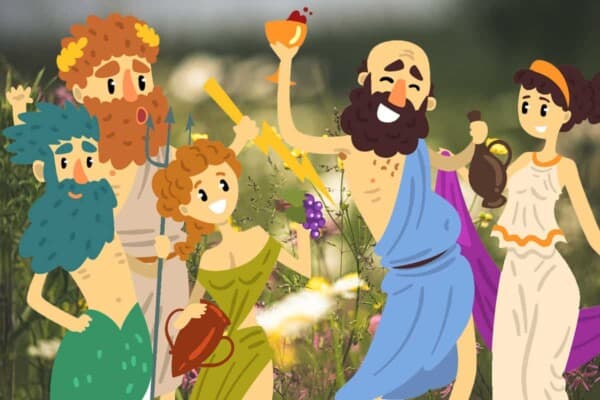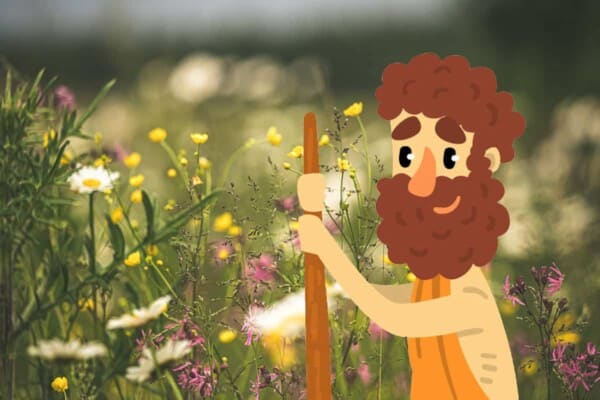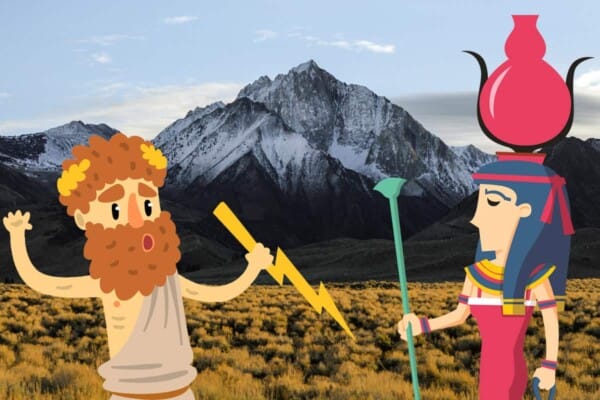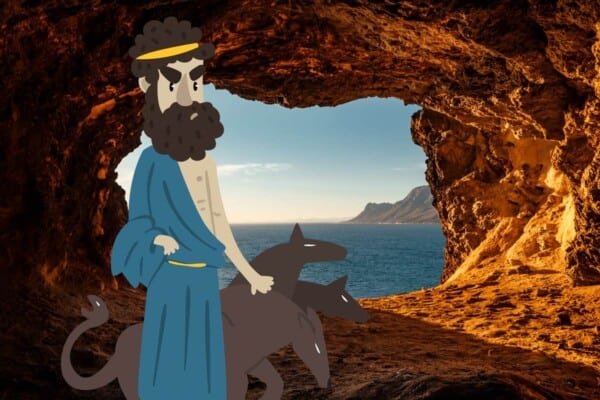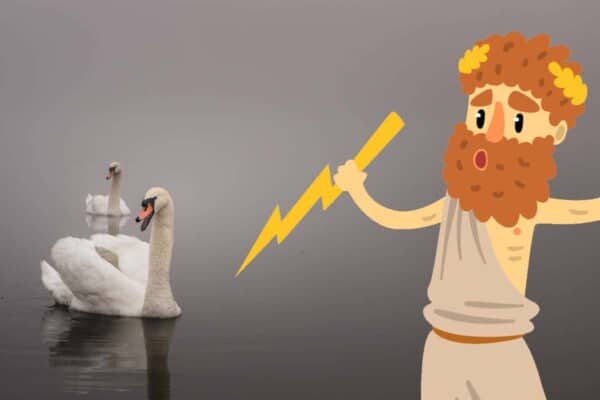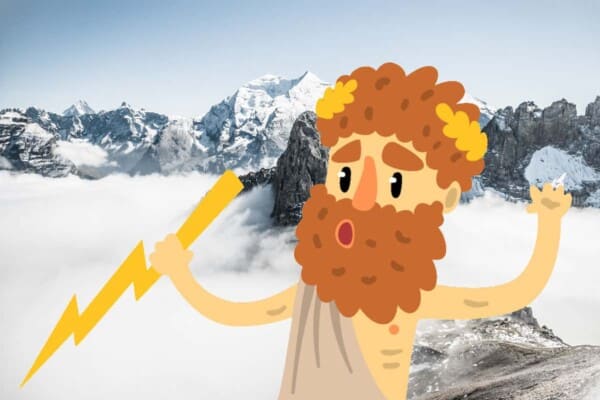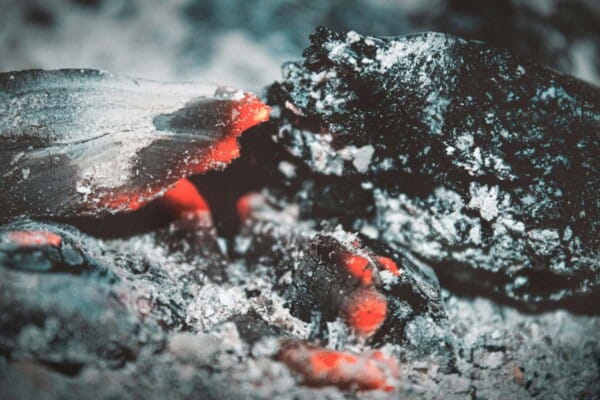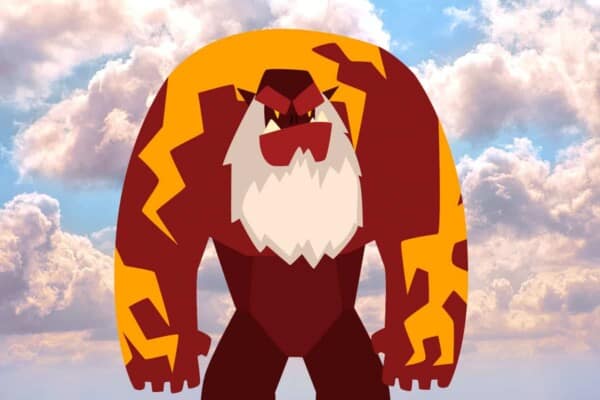The Twelve Gods of Olympus or the the Olympians were the ruling gods in Ancient Greek mythology, each with distinct and influential personalities, but why is Apollo particularly important?
Twin to Artemis, he was the sun where she was the moon. He was also one of the very few gods who kept his names and attributes when transferred to Roman myth;. Where Artemis became Diana, he remained Apollo (or Phoebus Apollo). Apollo was a god of music, but he was also quite versatile. He was a prophet amongst gods.
What Role Does Apollo Play in Some of the Myths?
Apollo appeared in many myths throughout Greek and Roman legend; some were alongside his sister, Artemis, while others were in his own right. The following tales are some of the most interesting from his life.
- Defending his mother – Both Apollo and Artemis were renowned for their love of their mother, Leto. She was often targeted by a jealous Hera or others. Apollo slew several giants, dragons, and men to protect his mother, including the sons of Niobe, the serpent-dragon Python, and the giant Tityos.
- Loving Admetus – King Admetus was one of Apollo’s male lovers who was known for his generosity. After Apollo left Admetus to return to heaven, he helped Admetus marry a princess. After this, he tricked the Fates into letting Admetus live past his natural death. When Zeus later punished him for this by killing Apollo’s son Asclepius with a lightning bolt. Apollo then killed the cyclops, who made the bolt in revenge.
- Inventing the lyre – There are two types of the lyre, both associated with Apollo. The tortoiseshell lyre was created by Hermes and gifted to Apollo to settle a debate after Hermes stole Apollo’s cows. The second, the more common lyre, was invented by Apollo himself before this, and he tore its strings in repentance for his own sins.
- Contests – Apollo had several musical matches with gods, men, and everything in-between! His most famous competitors were the nature god Pan, Cinyras of Cyprus, the satyr Marsyas, and a non-musical boxing contest with the giant king Phorbas. He won all of these contests.
- Orestes – Through the Oracle of Delphi, Apollo commanded the hero Orestes to kill his own mother, Clytemnestra, in revenge for her killing Orestes’s father, Agamemnon. Orestes did and was put on trial for the murder, judged by the gods. Apollo argued for the hero, and eventually, Athena decided in favor of his innocence.
Who were the Children and Lovers of Apollo?
Unlike his sister, Artemis, Apollo was far from chaste! He had many lovers, both male and female, and he produced children from many women. Some of the most famous of his children and their mothers include:
- Delphus, a demigod for whom Delphi was named. His mother was either Celaeno, Thyia, or Melaina.
- Asclepius, the god of medicine. His snaked rod is a symbol to this day for medicine in the western world. His mother was usually
- Coronis, a Thessalian princess. The Phoenicians claimed that Apollo birthed Asclepius alone.
- Orpheus, the legendary musician who tried to save his nymph wife from the underworld but failed because he turned to look at her at the last second. His mother was the muse Calliope.
- Linus, a music god and the inventor of lyric-music. Linus had several possible mothers, including the muse Urania, the human princess Psamathe, the muse Calliope, or the muse Euterpe
He was also the father of several children by unknown mothers. Some of these include:
- The Younger Muses, Kephiso, Apollonis, and Borysthenes were daughters of Apollo.
- Marathas, who gave his name to Marathon.
- Chariclo, a nymph and the wife of the centaur Chiron
- Melite, a lover of Herakles
Apollo had a few female lovers with whom he never had children as well. Amusingly, several stories focus on Apollo’s unsuccessful love affairs with women! These include:
- Cassandra, whom he granted the gift of prophecy. When she rejected him, he cursed her so that nobody would believe her predictions.
- Bolina, a nymph who threw herself into the sea rather than accept him and became immortal
- Castalia, a nymph who transformed herself into a fountain with poetry-giving waters rather than accept his advances. Her fountain is at Delphi.
- Daphne, whose river-god father accepted her plea and turned her into a laurel to prevent Apollo’s advances
Hestia, the goddess of the hearth and sometimes an Olympian, to whom he proposed marriage. She was sworn to be a virgin forever, and so rejected him. - Marpessa, a mortal princess who was given a choice between Apollo and the mortal Idas. She chose Idas as she thought Apollo would grow bored with her when she aged.
Finally, some of Apollo’s famous male lovers include:
- Adonis, lover of Aphrodite
- Carnus, a seer and student of Apollo
- Hyacinth, a divine hero whose blood became the flower of the same name
- Iapyx, who preferred healing to music
- Phorbas of Ellis who eventually fell to Apollo in a boxing contest
Apollo and Dionysus were half-brothers, both of Zeus but from different mothers. They shared a special relationship amongst the Olympians because Apollo represented order, reason, and harmony – the Apollonian attributes – while Dionysus represented the Dionysian attributes of chaos and emotion.
However, Apollo and Dionysus, as well as the philosophical concepts of Apollonian and Dionysian, were not enemies. Instead, they were seen as complementary to each other and required for the other to flourish. One could not have logic without emotion and vice versa.
In myth, when Apollo left his position at the Oracle of Delphi, he would leave it in Dionysus’s care.
What was Apollo the god of, exactly?
Like his half-brother and friend Hermes, Apollo was the god of several different dominions. His most noted are:
- Music, from which he gains his symbol of the lyre
- Medicine. His son Asclepius was even more important here.
- Beauty. He was sometimes the male equivalent to Aphrodite in this regard.
- The arts. Apollo served as a companion to the Muses and later fathered the next generation of Muses.
- Wisdom. He was the male counterpart of Athena in this. Like her, he was a favorite of Zeus.
- Light and the sun – his epithet Phoebus meant light. He operated as this to a lesser degree than Helios, the sun god. His sister Artemis represented the moon. His counterpart in darkness was his cousin, the chthonic goddess Hecate.
- Youth. Where Artemis was the goddess of maidens, Apollo protected young men and boys.
- Prophecy. Apollo was an oracular deity and could pass the gift to others whenever he pleased.
- Archery. Though the bow and arrow are primarily associated with Artemis, Apollo was also very skilled in shooting and hunting.
- Wolves, from his mother, Leto, who was the goddess of Lycia (lykos means wolf in Greek).
- Founding and protecting. He was said to care for shepherds and help find and protect several villages, cities, and temples.
Final Thoughts
Apollo was a versatile god who embodied noise and light as the counterpart of his calm sister, who rose with the moon. He is interesting specifically in that he was worshipped almost intact in Rome. His name survived throughout the centuries, even outside Greece and Rome, as a namesake for children.
Apollo was a competitive god who embodied the arts as a masculine activity. He was the god of music, healing, and art, but he was also a hunter, much like his sister. His successes and failures in legend balanced each other out in exciting ways.

